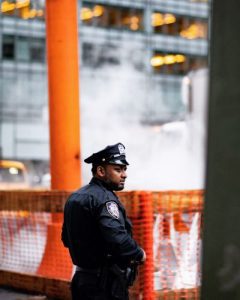The Issue of Suicide in Law Enforcement
As anyone who chooses to enter law enforcement knows, they are risking their lives every day. When a cops’ life is taken when on the job, the whole task force grieves.
It is traumatic to experience the death of a colleague and many will say it is one of the saddest things they’ve experienced at work. Unfortunately, due to the field they are working in, it can happen quite often.
Deaths while on the job are usually the most talked about risks but there are more disturbing ways that police officers are losing their lives. It’s kept much quieter than heroic, on the job deaths, but the suicide rate in law enforcement is an ever-growing issue and definitely something that needs to be addressed.
The Stigma Around Law Enforcement Suicides
Despite the progress, many experts acknowledge there is still a social stigma attached to mental illnesses. And it’s arguably more pronounced among cops and emergency workers who are supposed to be trained to deal with trauma.
Psychological problems remain a sensitive issue for many police officers, a perceived weakness in an occupation that puts a lot of pride in toughness and strength, both mental and physical.
The Rate of Suicide in Law Enforcement
Although the stereotypes may make the suicide rates seem out of control, that is not to say it’s not a problem. The fact that it is happening at all is a huge cause for concern and needs to be addressed.
In 2018 alone there were over 169 confirmed suicides in law enforcement, according to Blue H.E.L.P. But that’s not all. This was the third year in a row that the suicide rate had risen in number. There is a trend developing and it’s not a good one.
The rate of suicide in law enforcement is almost 3 times the rate of on the job deaths. Suicide is a touchy subject and one that seems to be brushed under the rug. With the comparison to actual deaths on duty and the fact that suicides are causing more deaths per year needs acknowledgement. Law enforcement suicide has even inherited the name “the other line of duty death” due to its significance.
How Does it Compare?
We know that suicide rates in the police force are high, but are they higher than regular suicide rates among the rest of society? According to studies done by the Center for Disease Control, they are substantially higher. When broken down into numbers, the suicide rate among cops is about 23 out of 100,000 cops. With the total citizens it works out to about 14 of 100,000 people. While both numbers are high, there is a clear divide between the two.
According to those figures, it is much more probable that a police officer will take their own life than someone who doesn’t work in law enforcement, about 1.5 times more probable.
To put it into perspective, the same study evaluated suicides within the military which works out to about 30 of 100,000 people. People in the military profession are substantially more likely to commit suicide than those who are police officers.
Why Are There So Many Suicides in Law Enforcement?
There will always be myths and stereotypes about why police officers are committing suicide. The rate is significantly higher than the general population and therefore people love to speculate why that is, including coming up with their own ideas. Some of these include turning to alcohol or drugs to escape from the pressure that comes with working in law enforcement. Another idea is that the high rate of divorce and lack of a social life can lead to depression in officers and therefore they have no desire to live.
While none of the above speculations are verified, they could all be indications of something else, PTSD.
Post-traumatic stress disorder is a common problem when working in law enforcement. The environment, the erratic shifts, the physical and psychological trauma and problems with health all play a part in developing PTSD. It makes sense that suicide rates will be higher when more staff are suffering from post-traumatic stress disorder.
In a study done by Ruderman Family Foundation it was concluded that 35% of those who work in law enforcement will suffer from PTSD at some point within their career. Comparatively, only about 6.8% of people suffer from PTSD. In the same study they found that 12% of police officers will suffer from depression as opposed to only 6.8% of everyone else.
How to Prevent Suicide in Law Enforcement
While there are increasingly more studies and research into the subject, we cannot conclusively say why each officer decides to commit suicide. Specialists say that a focus on physical and mental wellness programs within law enforcement agencies could be a huge benefit as well as help and support systems available to those who need it.
Law enforcement leaders can take proactive steps to build a more resilient agency to both help prevent mental health crises and address those that occur more effectively. A robust resource can be found at NAMI’s Preparing for the Unimaginable: A Report on Officer Mental Health.











